കോട്ടയം: സുസ്ഥിര വികസന ലക്ഷ്യങ്ങളില് പുരോഗതി ത്വരിതപ്പെടുത്തുന്നതിന് ജി 20 ആക്ഷന് പ്ലാന് കൊണ്ടുവരാന് ജി 20 വികസന വര്ക്കിംഗ് ഗ്രൂപ്പ് യോഗത്തില് ഇന്ത്യ നിര്ദ്ദേശിച്ചു.2030 അജണ്ട കൈവരിക്കുന്നതിനുള്ള ശ്രമങ്ങള്ക്ക് ആവശ്യമായ രാഷ്ട്രീയ ആക്കം നല്കുന്നതിന് പ്രവര്ത്തിക്കണമെന്ന് ആഗ്രഹിക്കുതായി വിദേശകാര്യ സെക്രട്ടറി ദാമു രവി പറഞ്ഞു.സുസ്ഥിര വികസന ലക്ഷ്യങ്ങളുടെ സംയോജിത സ്വഭാവം കണക്കിലെടുക്കുമ്പോള്, നയ മേഖലകളിലുടനീളം ഏകോപനവും വിന്യാസവും ഉറപ്പാക്കേണ്ടത് അത്യന്താപേക്ഷിതമാണ്.
ഇതിനായി, ജി20 ആക്ഷന് പ്ലാന്, ത്വരിതപ്പെടുത്തിയ കൂട്ടായ പ്രവര്ത്തനങ്ങള് മുന്നോട്ട് കൊണ്ടുപോകുന്നതിനും, ഹ്രസ്വകാല, ദീര്ഘകാല വെല്ലുവിളികളോട് പ്രതികരിക്കുന്നതും ശക്തവും സജീവവും അനുകൂലവും പ്രതികരിക്കുന്നതുമായ അന്താരാഷ്ട്ര അന്തരീക്ഷത്തിന് വഴിയൊരുക്കും.
പൊതു സേവനങ്ങള് നല്കുന്നതിനും സുസ്ഥിര വികസന നേട്ടത്തിനും വേണ്ടി സുപ്രധാന മാര്ഗമായി വികസനത്തിനായി ഡാറ്റ പ്രയോജനപ്പെടുത്തണമെന്ന് വിദേശകാര്യ സെക്രട്ടറി പറഞ്ഞു.

തുടരുന്ന ഒന്നിലധികം പ്രതിസന്ധികളുടെ ആഘാതങ്ങളെക്കുറിച്ചുള്ള ഗുരുതരമായ ആശങ്കകളും വികസനത്തിന്റെ പുരോഗതിയെ പിന്നോട്ടടിക്കുന്നു, അസമത്വങ്ങളെ ആഴത്തിലാക്കുന്നു, പാരിസ്ഥിതികവും കാലാവസ്ഥാ അപകടസാധ്യതകളും ഉയര്ത്തുന്നു. ഈ പ്രതിസന്ധികള് വിവിധ രൂപങ്ങളില് പ്രകടമാകുന്നത് തുടരുന്നതിനാല് അവ വികസ്വര രാജ്യങ്ങളെ വലിയ തോതില് ബാധിക്കും.
വികസ്വര രാജ്യങ്ങളും വികസ്വര രാജ്യങ്ങളും വന് കടബാധ്യതകളും ദുര്ബലമായ നിക്ഷേപവും മൂലം മന്ദഗതിയിലുള്ള വളര്ച്ചയെ അഭിമുഖീകരിക്കുന്നു. വളര്ച്ചയിലെയും ബിസിനസ് നിക്ഷേപത്തിലെയും ദൗര്ബല്യം വിദ്യാഭ്യാസം, ആരോഗ്യം, ദാരിദ്ര്യം, അടിസ്ഥാന സൗകര്യങ്ങള് എന്നിവയില് ഇതിനകം തന്നെ വിനാശകരമായ തിരിച്ചടികള് ഉണ്ടാക്കി. കാലാവസ്ഥാ വ്യതിയാനത്തിന്റെ ഫലമായി വര്ദ്ധിച്ചുവരുന്ന ആവശ്യങ്ങളും ഉണ്ട്.

360 കോടി ആളുകള് കാലാവസ്ഥാ ദുര്ബലമായ സന്ദര്ഭങ്ങളില് ജീവിക്കുന്നു. വര്ദ്ധിച്ചുവരുന്ന പണപ്പെരുപ്പവും ഭൗമരാഷ്ട്രീയ സംഘര്ഷങ്ങളും തത്ഫലമായുണ്ടാകുന്ന ഭക്ഷ്യഊര്ജ്ജ അരക്ഷിതാവസ്ഥയും ഈ വര്ഷം അവസാനത്തോടെ 67.6 കോടി ആളുകളെ കടുത്ത ദാരിദ്ര്യത്തിലേക്ക് തള്ളിവിടുമെന്ന് പ്രവചിക്കപ്പെടുന്നു. ലോകം കുറഞ്ഞ കാര്ബണ് ഭാവിയിലേക്ക് മാറുന്നതിന് 2050 വരെ ഓരോ വര്ഷവും 3.8 ട്രില്യണ് ഡോളറിലധികം ( 3 കോടി കോടി രൂപ)ആവശ്യമാണ്. വളര്ച്ച ത്വരിതപ്പെടുത്തുന്നതിനും അവരുടെ കാലാവസ്ഥാ, പാരിസ്ഥിതിക ലക്ഷ്യങ്ങള് കൈവരിക്കുന്നതിനുമുള്ള ഇരട്ട മുന്ഗണനകളില് ശ്രദ്ധ കേന്ദ്രീകരിക്കാന് വികസ്വര രാജ്യങ്ങളില് നിന്ന് സമ്മര്ദ്ദകരമായ പ്രതീക്ഷകളുണ്ട്.
21ാം നൂറ്റാണ്ടിന്റെ ആവശ്യങ്ങളോടും വെല്ലുവിളികളോടും പൊരുത്തപ്പെടുന്ന ധീരമായ കാഴ്ചപ്പാട് ഇന്ന് ലോകത്തിന് ആവശ്യമാണ്, അത് മുന്കാലങ്ങളെ അപേക്ഷിച്ച് കൂടുതല് സുസ്ഥിരവും ഉള്ക്കൊള്ളുന്നതും പ്രതിരോധശേഷിയുള്ളതുമായ കുറഞ്ഞ കാര്ബണ് വികസന പാതയിലേക്ക് നമ്മെ പ്രേരിപ്പിക്കുന്നു. വിദേശകാര്യ സെക്രട്ടറി ദാമു രവി പറഞ്ഞു.

Remarks byDammu Ravi, Secretary (ER), Ministry of External Affairs at the 2nd DWG Meeting
It is my great pleasure to welcome you all to the 2nd Development Working Group meeting in this serene, and picturesque village of Kumarakom. I hope that in the coming days you get a chance to soak in its rich traditional architecture, rare flora and fauna, splendid houseboats and delicious local cuisines.
It is heartening to see the developmental agenda continuing to take prominence and centerstage from the Indonesian presidency to ours. We all share a grave concern for the impacts of the ongoing multiple crises. These cascading crises are setting back progress on development, deepening inequalities and accentuating environmental and climate risks. They are disproportionately affecting the developing countries as these crises continue to manifest in different forms.
This year, we are experiencing the third-weakest pace of global economic growth in nearly three decades. Both, emerging and developing countries are facing a multi-year period of slow growth driven by heavy debt burdens and weak investment as global capital is absorbed by advanced economies faced with extremely high government debt levels and rising interest rates. Weakness in growth and business investment will compound the already-devastating reversals in education, health, poverty, and infrastructure and the increasing demands from climate change.
We have 3.6 billion people living in climate vulnerable contexts. Rising inflation, geopolitical conflicts and the resulting food and energy insecurity is projected to push 676 million people into extreme poverty by the end of this year. Over $3.8 trillion is needed each year till 2050 for the world to transition to a low-carbon future. There exists a $500 billion SDG financing gap for developing countries, including LDCs and SIDS. At the same time, there are pressing expectations from developing countries to focus on the twin priorities of accelerating growth and achieving their climate and environmental goals.
Today, the world needs a bold vision attuned to the needs and challenges of the 21st century that propels us to embark on a low-carbon development path that is more sustainable, inclusive, and resilient than the past. And hence, it is my belief that the work of the Development Working Group has never been more timely and critical.
There is a compelling and urgent need for taking strong measures to support developing countries with the necessary affordable financing, technology transfer, and capacity building to accelerate progress on SDGs. And it this objective has guided us in articulating the contours of the outcomes in the Development Working Group for this year.
We believe that due to its cross-cutting agenda and focus on development issues, the Development Working Group is the ‘heart and soul’ of India’s G20 Presidency. The envisaged vision for green development will take inspiration from all the outcomes that have been proposed as part of this important working group.
Today’s complex, interconnected crises have forced us to combine development and crisis response and not be caught in the dilemma of two steps forward and one step back when it comes to each new challenge.
We are also firmly of the belief that every crises situation can be turned into an opportunity for a concerted push towards a sustainable, inclusive and resilient future. Furthermore, we are convinced that accelerating the progress towards SDGs will support our endeavors to combine short term crisis response with long term gains. Thus, this year we are proposing to come up with a G20 Action Plan to Accelerate Progress on the Sustainable Development Goals.
We want the DWG to work towards finalizing the G20 High-level Principles that will provide the necessary political momentum to the efforts on achieving the 2030 Agenda.
Given the integrated nature of the SDGs, it is imperative to ensure coordination and alignment, across several policy areas. Central to meeting today’s challenges is harnessing the power of digital transformations, just green transitions and women-led development; and enhancing coordination and partnerships with all stakeholders, to accelerate the achievement of SDGs.
To this end, the G20 Action Plan will pave the way in propelling accelerated collective actions and galvanizing support for an international enabling environment that is robust, proactive, adaptive and responsive to the short-term and long-term challenges.
Similarly, LiFE or Lifestyle for Environment will be an engine of growth for all countries, focusing on the interlinkages between the development agenda and environment including the climate agenda. LiFE will be a pro-people and a pro-planet approach that will promote the evolution of a new pro-growth development paradigm which aims at bringing sustainability through multi-stakeholder collaborations.
Additionally, we foresee leveraging data for development as a vital means to generate actionable intelligence towards delivery of public services and achievement of the SDGs. G20 high level principles on data for development will be the guiding light for G20 countries to harness imperfect, complex, often unstructured data into actionable information for development purposes.
A key component of harnessing data is the requirement of capacity, not only in terms of data-related infrastructure and data-gathering tools but also in terms of human capacity and data analytics, especially at the intersection of data and other sectors such as agriculture, environment and health.
The G20 Data for Development Capacity Building Network would call upon countries, private companies, data-related institutions and initiatives, philanthropic foundations and UN organizations to come together as spokes of the Capacity Building Network to collaborate under a Hub to build a range of capacities on data for development purposes.
As I mentioned earlier, we see the role of the DWG as paramount in the materializing of a green development vision for the world which will hopefully result in a G20 Leaders’ deliverable titled the Green Development Pact. The consensus on collective action from this group will propel us manifold to regain the lost ground to development over the last few years. Hence, we must leave no stone unturned to put our efforts together to solve our collective challenges.
In the spirit of collective solidarity, we stand ready to live up to our G20’ Presidency’s theme of One Earth, One Family, One Future. We want to collaborate with you all to make these envisaged outcomes from the DWG tangible and actionable commitments of the G20 for the upcoming international gatherings, in particular the COP28 and the UN SDG Summit.
In closing, I would reiterate that no matter how hard the challenges, we must move forward together. It is only by acting as one, as one family, do we stand any chance to succeed; and succeed we must for our future generations. India is ready to make the envisaged DWG outcomes, a G20’s gift to the world.
I thank you all for your presence today and I hope that under the able leadership of the Co-Chairs you will arrive at a strong consensus very soon.




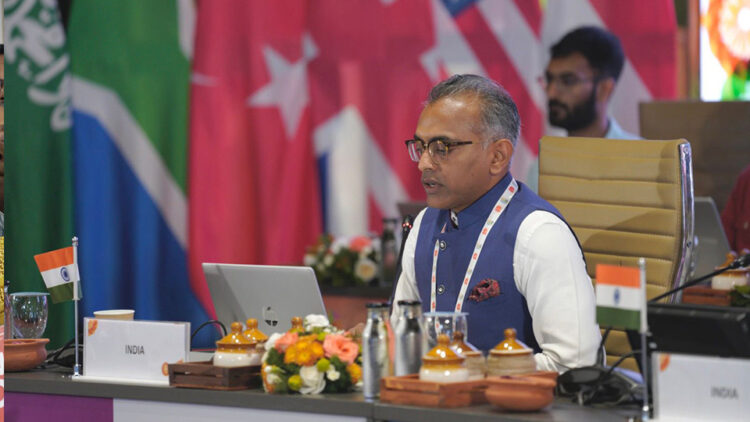
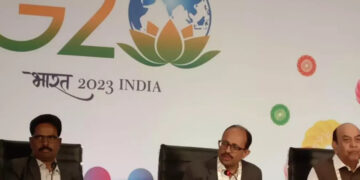
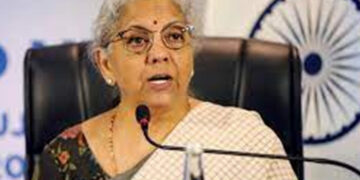
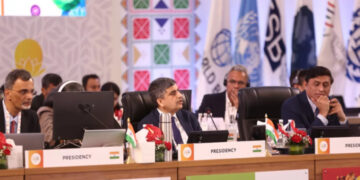
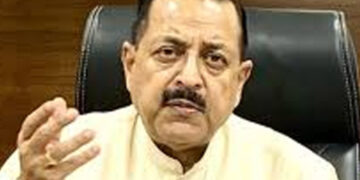
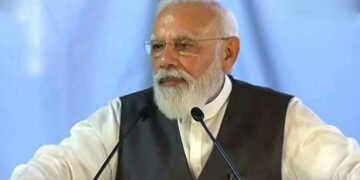










പ്രതികരിക്കാൻ ഇവിടെ എഴുതുക: